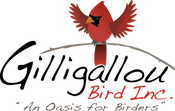It’s been about 10 years since the first documented case of trichomoniasis was recorded in Canada and officials in the eastern region of the country are saying the deadly infection is spreading rapidly.
The infection initially affected pigeons, doves, and raptors exclusively but has since begun spreading into other species of passerines across North America. Caused by the microscopic parasite Trichomonas gallinae, it does most of its damage in the upper digestive tract, liver, lungs, air sac, internal body lining, pancreas, bones, and sinuses of the skulls of birds. Completely nasty in design, it leaves those affected wet, drooling and lethargic, making them rather easy to spot in the wild.
According to Dave Currie of the Nova Scotia Bird Society, the infection in Nova Scotia is the worst he’s seen in the 40 years he’s spent studying birds.
“I’ve not seen anything even remotely close to this,” he told CBC News.
“We’re getting reports from all over the province from people who are seeing these very sick and lethargic purple finches and goldfinches in their yards. So it’s not something that is normal. It’s something we’re really watching carefully.”
Mainly affecting Finch and Siskin species in the Canadian Maritimes, wildlife experts in our eastern provinces are urging homeowners and birders to take action immediately to help stop the spread of the deadly infection. While the province of Prince Edward Island is without a confirmed case of the infection, wildlife experts on the island are inviting birders to be proactive and remove all feeders for the moment.
Officials remain uncertain as to what triggered the sudden emergence of the infection in eastern provinces such as Nova Scotia but are warning that while it has yet to pose any harm to humans or domestic pets such as dogs and cats, it can certainly affect captive poultry and pet birds.
The Canadian Wildlife Health Cooperative has the following recommendations for dealing with and containing the infection:
- During a known outbreak of trichomonosis, remove bird feeders and baths for at least two weeks to disperse birds and reduce the likelihood of transmission. During the summer months, there is plenty of natural food and water available for birds.
- Clean your bird feeders and baths regularly. A weak solution of domestic bleach (5% sodium hypochlorite) should be used to disinfect feeders and baths. Feeders should be rinsed well and dried before reused.
- Only use bird feeders that prevent the seed from getting wet. Birdseed that is exposed to rain and becomes wet is a more suitable environment for the potential survival of the parasite.
- Do not use table feeders. Sick birds sitting directly on birdseed are more likely to contaminate it with Trichomonas gallinae.
- Report any sick or dead birds to the Canadian Wildlife Health Cooperative. Find your closest regional centre at: http://www.cwhc-rcsf.ca/


Comments (0)